Some thoughts on the encroachment of AI
Humans, funny enough, value their humanity
Let’s imagine that you’ve spent the last few months writing a book, but in your excitement to finish you forgot to back up your draft. One day, as the book is approaching its completion, you open your laptop and find that the only copy of your precious work is gone. Gone! Months of effort wasted, and nothing to show for it. :(
You’re understandably distraught, so you call your friend in a panic. You vent with them about how frustrated you are about the situation, and scream at yourself for your mistake. Your friend is wonderful, listens patiently to your ranting, and comforts you over the phone. You eventually feel better, and hang up.
You then get a notification, “Thank you for testing out our new AI phone calling system. We’d appreciate your feedback!” Your friend, in fact, wasn’t on the phone with you at all, but were rather replaced with an AI that sounded and spoke just like them.
You’re obviously horrified. But why? Why is some part of our human nature repulsed by this fictional scenario?
We’re living through a pretty crazy time right now — the dawn of the AI age. As dramatic as it sounds, it’s a huge deal, and future generations will undoubtedly look back at us and wonder how we lived without it. It’s on the level of the printing press or the Internet in terms of its potential impact, so the world is naturally in a state of extreme flux as everyone is figuring out what to do. For me at least, it feels like the Wild West — exciting, but scary.
It’s actually crazy! AI can write fully functional essays and, in theory, complete all of my college-upper-division coding projects (not that I’d know). And just this past week, OpenAI released 4o Image Generation, the best image creator to date. Here’s an example of two pictures that I uploaded to ChatGPT, which I then made in Cubism and Studio Ghibli versions:
This is amazing!
But while this model is a true testament to the ingenuity of human engineering, its art has a fundamental limit — the simple fact that humans didn’t make it. AI did. Humans value human effort, and value things that we ourselves have put blood, sweat, and tears into. It’s why Studio Ghibli founder Hayao Miyazaki said that “whoever creates this stuff has no idea what pain is whatsoever.” There’s a fundamental need for human suffering and effort to be in an artwork, and we feel empty and disdainful without it.
Harry Dry, a marketing professional, describes this phenomenon in an analysis of what makes YouTube videos successful:
2/ What do these four YouTube videos have in common?
Take a moment to think.
The answer: They all signal the effort in making them.
- $21,000 spent on a plane ticket
- A few hours making a pretty mind map
- More than a few hours watching football to find 16 freekicks
- One trip to the supermarket to buy two packets of crisps
Your conscious mind probably didn't notice. But your subconscious mind did. All four videos got twenty times more views than the channel average.
The technical term is “costly signaling theory”.
“The significance we attach to something is felt in direct proportion to the expense with which it is communicated.”
“But it's just two packets of crisps”, I hear you cry! Yes, that is all it takes. Here's the same thumbnail without one trip to the supermarket.
If you still don't understand, read this screenshot!
This is exactly why my professor would much rather have me submit a poor paper that I wrote than a world-class paper written by ChatGPT. The first one gets a C. But the other gets an F and is reported to the dean for cheating.
These days, it’s the fact that you went and did it that matters, not necessarily the final output. Obviously, the goal is to have your work be as good as possible, but not at the expense of sacrificing the fact that you wrote it yourself. For the same reason, I’ve saved every single handwritten note that my little brother or girlfriend has ever given to me — because I value and appreciate the effort that went into writing them.
And it’s why the hypothetical phone call at the beginning is so repulsive to us — we value knowing that there’s a human on the other side, whether it’s an artwork, a piece of writing, or a simple phone call. It doesn’t matter if they say much, because there’s simply a magical connection that happens between people, regardless of the time or distance involved. It’s what makes human interaction so beautiful, and what makes life so exciting.
Maybe one day when AI becomes sentient, we’ll appreciate their artwork and writing more. But as long as they remain machines at their most basic level, we’re left to appreciate our humanity. 🤖
Best,
Dennis :)
P.S. Brooke, the opening may or may not have been inspired by you! 📚


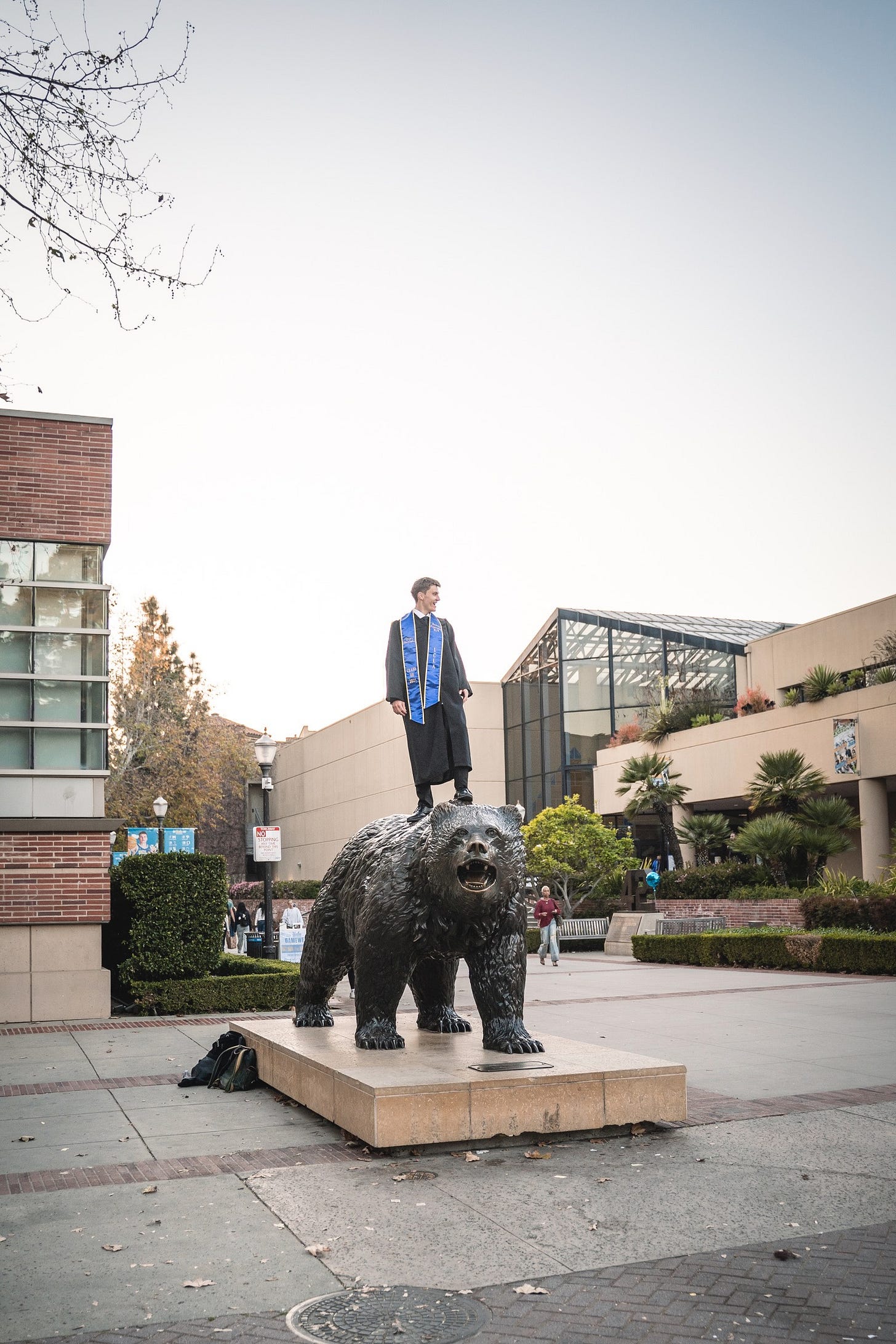
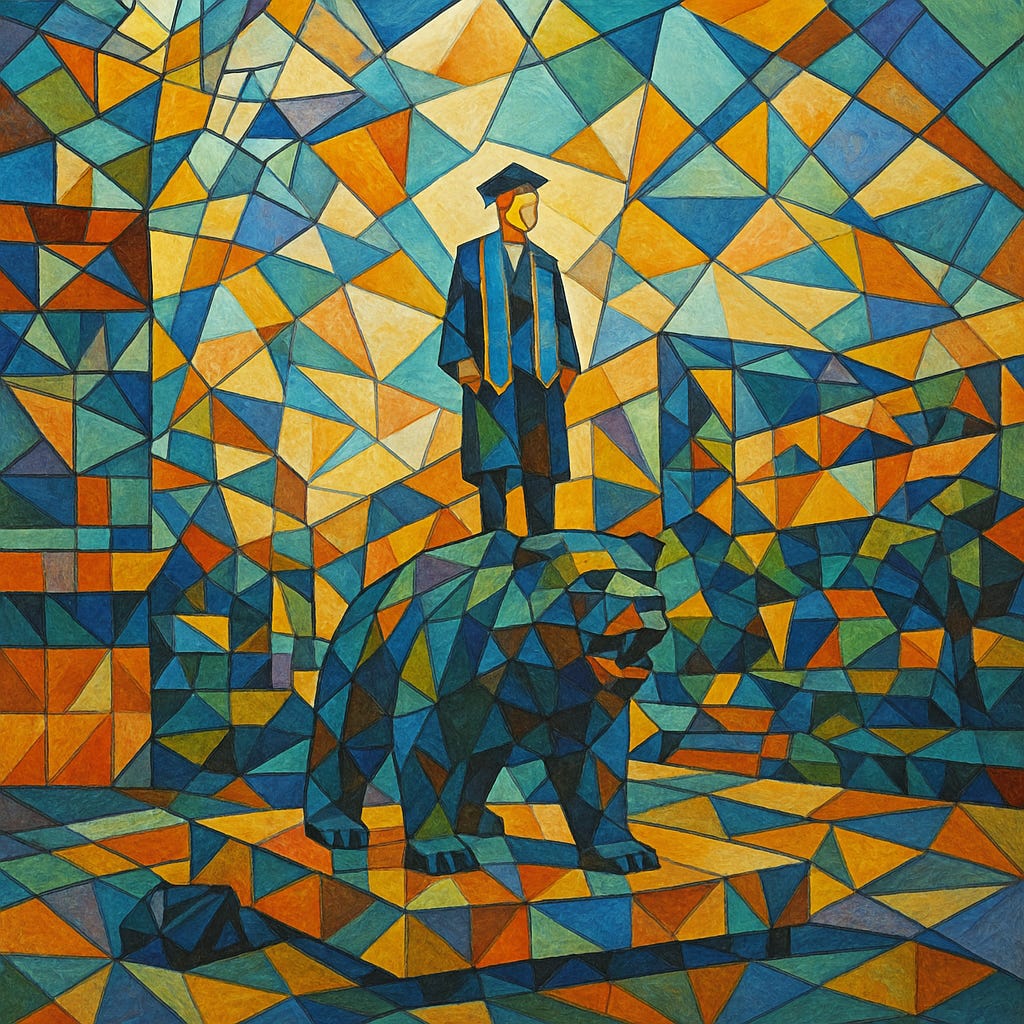
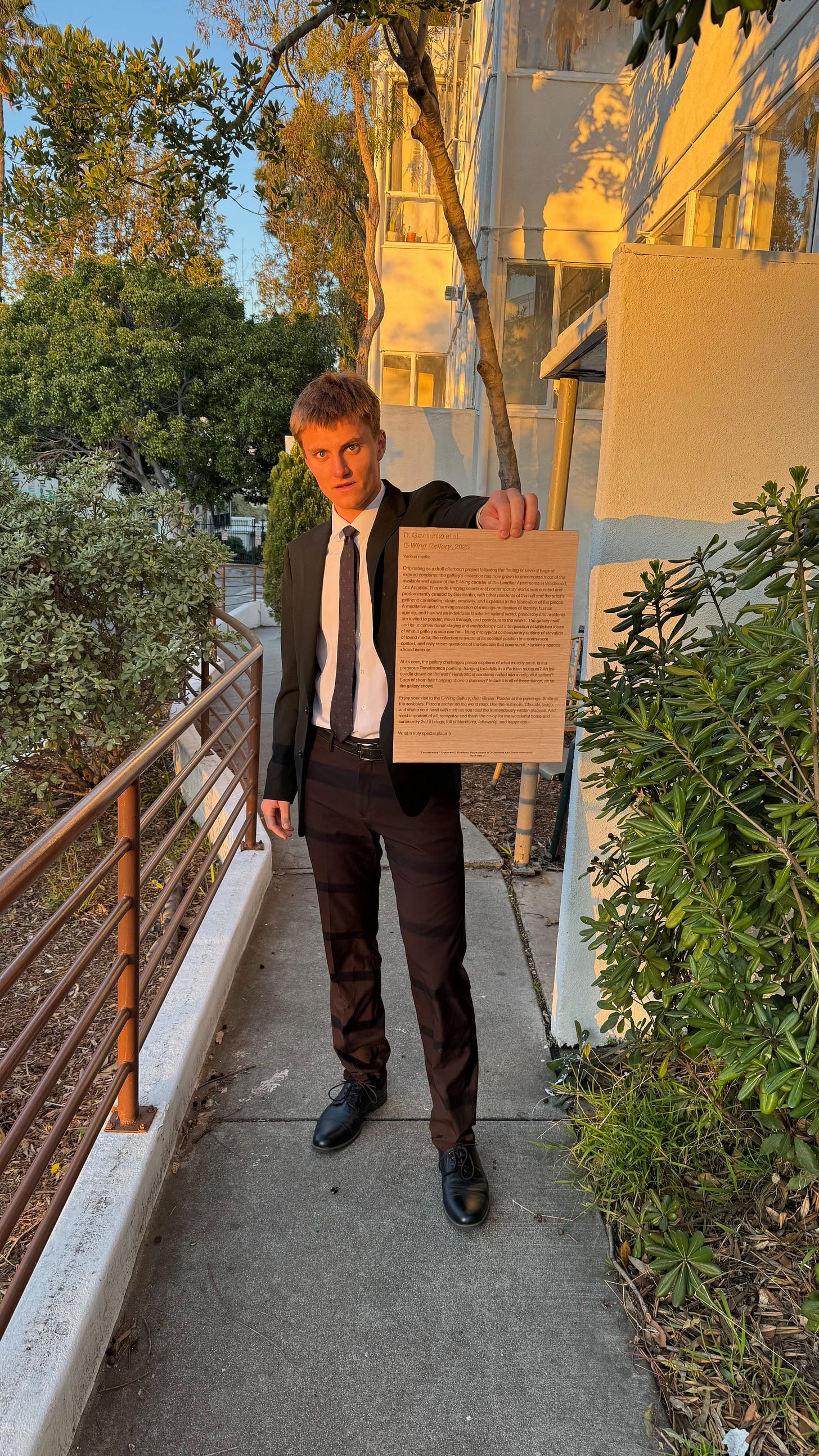
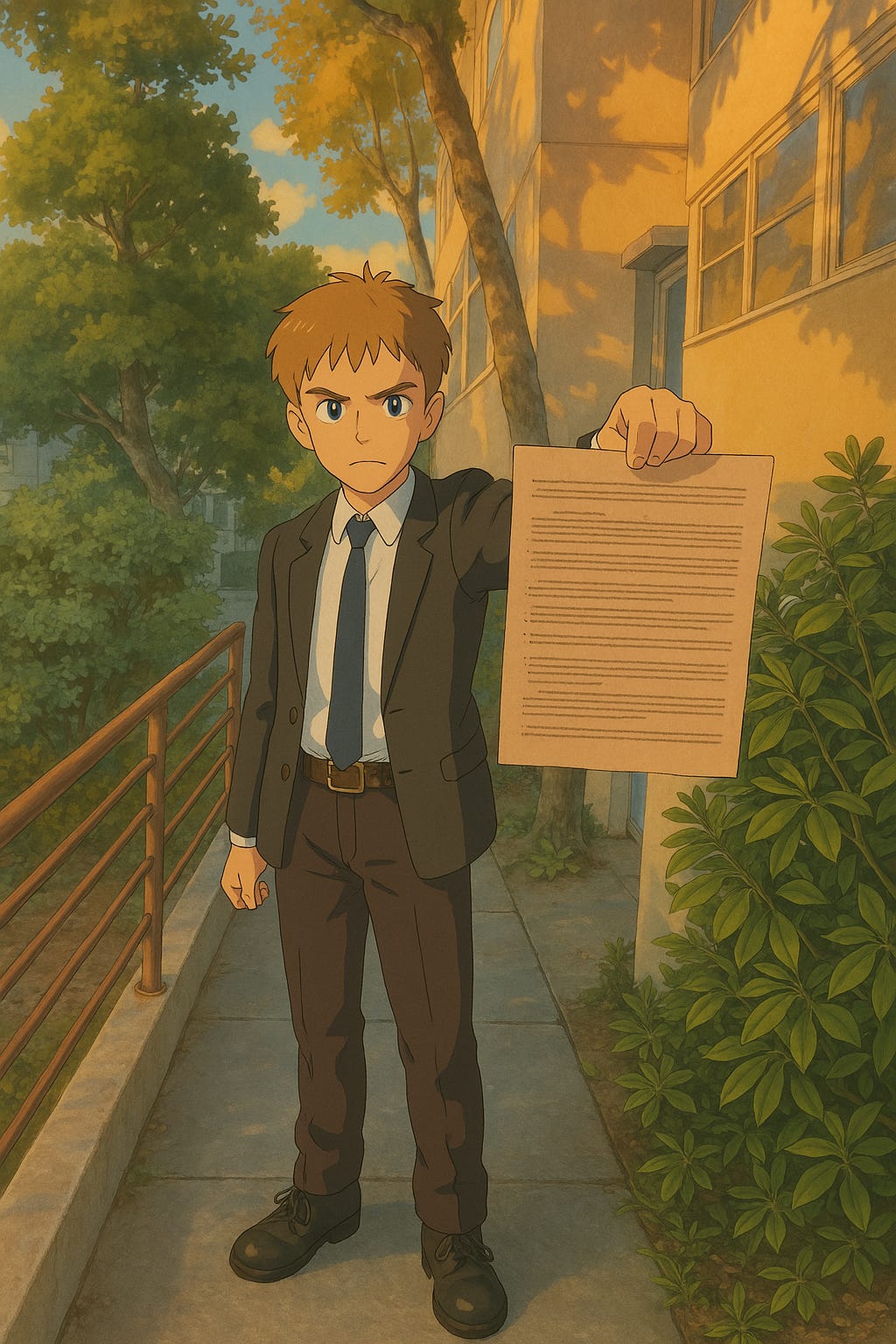


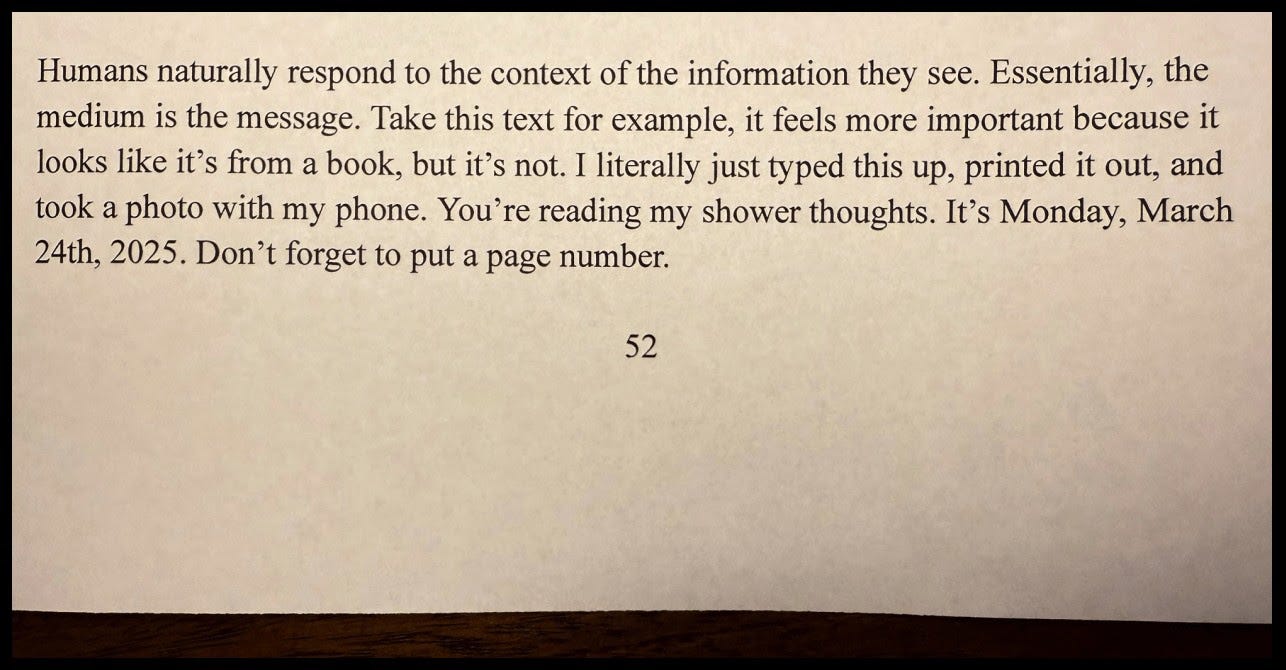
Appreciate the mention!
MY FAVORITE THING IS WHEN I READ SOMETHING THAT ARTICULATES SOMETHING I HAVE BEEN TRYING (& FAILING) TO EXPRESS FOREVER! Wish I could rewind to every conversation I've ever had about AI and art to incorporate what I just read here. Thank you!!!!!!!